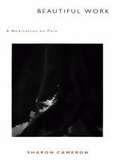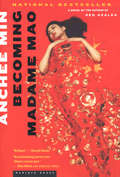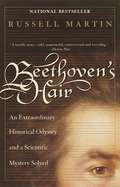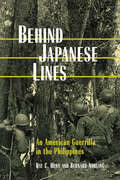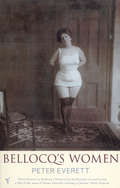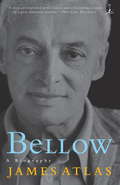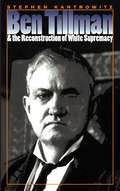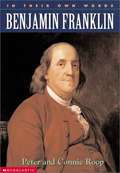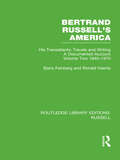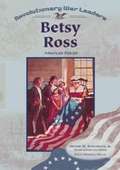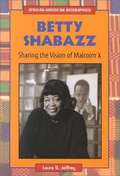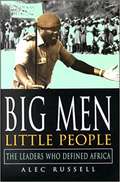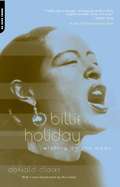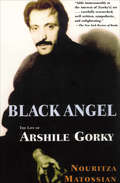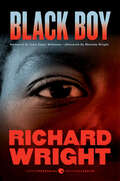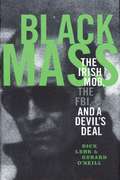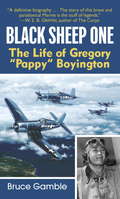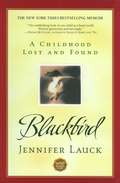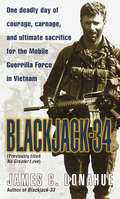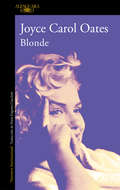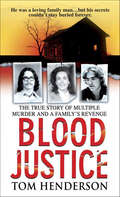- Table View
- List View
Beautiful Work: A Meditation on Pain
by Sharon CameronThe stories one tells about pain are profound ones. Nothing is more legible than these stories. But something is left out of them. If there were no stories, there might be a moment of innocence. A moment before the burden of the stories and their perceived causes and consequences. For Anna, the narrator of Beautiful Work, there were moments when it was not accurate to say in relation to pain "because of this," or "leading to that." They were lucid moments. And so she began to hunger for storylessness. In order to understand the nature of pain, Anna undertakes a meditation practice. We tend to think of pain as self-absorbing and exclusively our own ("my pain," "I am in pain"). In distinction, Sharon Cameron's Anna comes to explore pain as common property, and as the basis for a radically reconceived selfhood. Resisting the limitations of memoir, Beautiful Work speaks from experience and simultaneously releases it from the closed shell of personal ownership. Outside of the not quite inevitable stories we tell about it, experience is less protected, less compromised, and more vivid than could be supposed. Beautiful Work brings to bear the same interest in consciousness and intersubjectivity that characterizes Cameron's other work.
Becoming Madame Mao: A Novel
by Anchee MinFrom the national bestselling author of Red Azalea: &“Extraordinary . . . Min lets [Madame Mao] be seen as never before. Bottom line: riveting&” (People). In a sweeping, erotically charged story, Anchee Min creates a finely nuanced portrait of one of the most fascinating, and vilified, women of the twentieth century. Madame Mao is almost universally known as the &“white-boned demon&”—ambitious, vindictive, and cruel—whose bid to succeed her husband led to the death of millions. But Anchee Min&’s story begins with a young girl named Yunhe, the unwanted daughter of a concubine who ignored her mother&’s pleas and refused to have her feet bound. It was the first act of rebellion for this headstrong, beautiful, and charismatic girl, who would find fame as an actress in Shanghai, and later fall in love and marry Mao Zedong. The great revolutionary leader proved to be an inattentive husband with a voracious appetite for infidelity, but the couple stayed together through the Communist victory, the disastrous Great Leap Forward, and the chaos of the Cultural Revolution. Min uses historical facts and her lush, penetrating psychological imagination to take us beyond the myth of the person who so greatly influenced an entire generation of Chinese. The result is a complex portrait of a woman who railed against the confines of her culture, whose deep-seated insecurities propelled her to reinvent herself constantly, and whose ambition was matched only by her ferocious, never-to-be-fulfilled need to be loved. &“Sheer poetry.&” —The Wall Street Journal &“A magnificent book: consequential, significant, beautiful . . . The true heroine is writer Anchee Min.&” —San Diego Union-Tribune
Beethoven's Hair: An Extraordinary Historical Odyssey and a Scientific Mystery Solved
by Russell MartinReaders will follow the strange, yet true, journey made by a lock of Ludwig van Beethovens hair from the time it was clipped from the composers head on his deathbed in Germany in 1827 to a World War II refugee safe house in Denmark in 1943 to its eventual sale at auction in 1994. From this lock of hair, scientists were able to discover the cause of Beethovens death, a question that had long puzzled scientists and musicologists.
Behind Japanese Lines: An American Guerrilla in the Philippines
by Ray C. Hunt Bernard NorlingThis WWII combat memoir offers a rare firsthand account of the Allied guerilla forces fighting the Japanese occupation of the Philippines. In the Spring of 1942, US and Philippine forces lost the Battle of Bataan, leaving control of the Bataan Peninsula and the island of Corregidor to the Japanese. After the devastating loss, the Allied forces stationed across the Philippine Archipelago were supposed to surrender. Yet many of them refused, escaping into the mountains and jungles to form guerilla units. In Behind Japanese Lines one of those brave soldiers, Ray Hunt, recounts his experiences as part of the Allied resistance against the Japanese occupation. After escaping the Bataan Death March, Ray organized a troop of guerillas who went on to make noteworthy contributions to the Filipino-American reconquest of the Philippines. Ray&’s story sheds important light on US-Filipino relations during World War II, as well as the realities of fighting both the Imperial Japanese Army and the Hukbalahap communist guerillas."Stands out for the vividness of its detail, its effort to sort fact from legend, and its tribute to the heroism of the resistance movement, which was almost entirely Filipino.&” —Choice
Bellocq's Women
by Peter EverettIn 1912, in Storyville, the notorious red-light district of New Orleans, a photographer named E. J. Bellocq took a series of photographs of the women who worked in the brothels. Rediscovered in the 1950s, Bellocq's photographs have become famous, but the man himself remains a mystery.In Bellocq's Women, Peter Everett performs as remarkable a feat of fictional reconstruction as he did in Matisse's War and The Voyages of Alfred Wallis. All we have of Bellocq are his photographs and a few fragmentary memories; in this extraordinary novel Everett not only brings the photographer to life - and with him his strange, tortured relationship with his mother and two young girls, one his landlady's daughter, the other a child whore - but also his world - the opium dens and bar rooms of New Orleans and the whore houses with their surreal combination of violence and homeliness.
Bellow
by James AtlasWith this masterly and original work, Bellow: A Biography, National Book Award nominee James Atlas gives the first definitive account of the Nobel Prize-winning author's turbulent personal and professional life, as it unfolded against the background of twentieth-century events--the Depression, World War II, the upheavals of the sixties--and amid all the complexities of the Jewish-immigrant experience in America, which generated a vibrant new literature.Drawing upon a vast body of original research, including Bellow's extensive correspondence with Ralph Ellison, Delmore Schwartz, John Berryman, Robert Penn Warren, John Cheever, and many other luminaries of the twentieth-century literary community, Atlas weaves a rich and revealing portrait of one of the most talented and enigmatic figures in American intellectual history.Detailing Bellow's volatile marriages and numerous tempestuous relation-ships with women, publishers, and friends, Bellow: A Biography is a magnificent chronicle of one of the premier writers in the English language, whose prize-winning works include Herzog, The Adventures of Augie March, and, most recently, Ravelstein.
Ben Tillman and the Reconstruction of White Supremacy
by Stephen KantrowitzThrough the life of Benjamin Ryan Tillman (1847-1918), South Carolina's self-styled agrarian rebel, this book traces the history of white male supremacy and its discontents from the era of plantation slavery to the age of Jim Crow.As an anti-Reconstruction guerrilla, Democratic activist, South Carolina governor, and U.S. senator, Tillman offered a vision of reform that was proudly white supremacist. In the name of white male militance, productivity, and solidarity, he justified lynching and disfranchised most of his state's black voters. His arguments and accomplishments rested on the premise that only productive and virtuous white men should govern and that federal power could never be trusted. Over the course of his career, Tillman faced down opponents ranging from agrarian radicals to aristocratic conservatives, from woman suffragists to black Republicans. His vision and his voice shaped the understandings of millions and helped create the violent, repressive world of the Jim Crow South.Friend and foe alike--and generations of historians--interpreted Tillman's physical and rhetorical violence in defense of white supremacy as a matter of racial and gender instinct. This book instead reveals that Tillman's white supremacy was a political program and social argument whose legacies continue to shape American life.
Benjamin Franklin
by Peter Roop Connie RoopThe story of America's first well-known jack-of-all-trades--printer, scientist, inventor, and statesman Benjamin Franklin--is told here in his own words, through his newspaper articles and personal recollections.
Bereft: A Sister's Story
by Jane BernsteinAuthor Jane Bernstein was a senior in high school when her older sister Laura was murdered on the campus of Arizona State University. From the moment they heard the shattering news, Jane's parents handled their grief through stoic silence. Crying and mourning were forbidden; the past was the past, and it was essential to move on. More than 20 years later Jane Bernstein found herself compelled to revisit her sister's death, to learn what she could about the murder and the man convicted of the crime. In the process she found herself examining her own life and confronting the problems in her marriage.
Bertrand Russell's America: His Transatlantic Travels and Writings. Volume Two 1945-1970 (Routledge Library Editions: Russell)
by Barry Feinberg Ronald KasrilsOriginally published in 1984, this volume documents Bertrand Russell’s travels in America covering the period 1945-1970. It is presented in two halves with the first a biographical account of Russell’s involvement with the United States, with special reference to the seven visits he made there during this time period. Throughout this section the most representative of Russell’s journalistic writings are highlighted and these are presented as full texts in the second half of the book. This collection is assembled to provide an understanding of Russell’s deep and many-sided involvement with the United States during his life. A documented account, it is supplemented with important letters, photographs and newspaper articles.
Betsy Ross: American Patriot (Revolutionary War Leaders Series)
by Susan Martins-MillerCompelling portraits of American history's most notable male and female leaders. Includes informative sidebars; Interesting, easy-to-understand content; Complements school curriculum. When George Washington needed a symbol for the new nation, he turned to Ross to sew the American flag.
Betty Shabazz: Sharing the Vision of Malcolm X
by Laura S. JeffreyProfiles the life of Betty Shabazz, the widow of Malcolm X, discussing her life as the wife of the outspoken civil rights leader and her role in the civil rights movement after his death.
Big Men, Little People: The Leaders Who Defined Africa
by Alec Russell<p>The Sixties were a heady time for Africans. All over the continent colonial flags were being lowered and Africans looked forward to freedom and a glittering future. But for most of the continent the last forty years have been a shattering experience. Since independence Africans have been terribly betrayed by the Europeans, the superpowers, and tragically, by their own leaders. <p>Can a new generation of leaders turn the tide? Will they learn from their predecessors' mistakes and fuel a new African renaissance? Or is Africa doomed to further decades of turmoil? <p>In this witty and informative book, Alec Russell answers these questions by telling the stories of his encounters with Africa's Big Men. Each one represents a theme which has shaped the continent: Mobutu Sese Seko of Zaire, the "King of Kleptocracy" whose staggering corruption crippled Zaire; Jonas Savimbi, the life-long guerrilla and symbol of the Cold War's destructive legacy on the continent; the quixotic Hastings Banda, the ultimate product of colonialism; and, of course, Nelson Mandela, symbol of reconciliation and hope for an entire continent. <p>By any measure, this has been a terrible century for Africa. However Russell detects signs of hope in the fledgling human rights troupe he encounters deep in the steamy heart of the Congolese jungle and in the group of journalists keeping Moi's tottering regime in Kenya on its toes. <p>Big Men, Little People is a vividly written portrait of a continent, which avoids the usual stereotypes and dire prophecies and entertains from start to finish.</p>
Billie Holiday: Wishing on the Moon
by Donald ClarkeCertainly no singer has been more mythologized and more misunderstood than Billie Holiday, who helped to create much of the mystique herself with her autobiography, Lady Sings the Blues. "Now, finally, we have a definitive biography," said Booklist of Donald Clarke's Billie Holiday, "by a deeply compassionate, respectful, and open-minded biographer [whose] portrait embraces every facet of Holiday's paradoxical nature, from her fierceness to her vulnerability, her childlikeness to her innate elegance and amazing strength. " Clarke was given unrivaled access to a treasure trove of interviews from the 1970s-interviews with those who knew Lady Day from her childhood in the streets and good-time houses of Baltimore through the early days of success in New York and into the years of fame, right up to her tragic decline and death at the age of forty-four. Clarke uses these interviews to separate fact from fiction and, in the words of the Seattle Times, "finally sets us straight. . . evoking her world in all its anguish, triumph, force and irony. " Newsday called this "a thoroughly riveting account of Holiday and her milieu. " The New York Times raved that it "may be the most thoroughly valuable of the many books on Holiday," and Helen Oakley Dance in JazzTimes said, "We should probably have to wait a long time for another life of Billie Holiday to supersede Donald Clarke's achievement. "
Bishop of the Resistance: The Life of Eivind Berggrav, Bishop of Oslo
by Edwin RobertsonThe role played by the Bishop of Oslo, especially during the Second World War.
Black Angel: The Life of Arshile Gorky
by Nouritza MatossianA biography of the Armenian painter that &“adds immeasurable to the interest of [his] art . . . Carefully researched, well written, [and] enlightening&” (The New York Review of Books). In this first full-scale biography, Nouritza Matossian charts the mysterious and tragic life of Arshile Gorky, one of the most influential painters of the twentieth century. Born Manoug Adoian in Armenia, he survived the Turkish genocide of 1915 before coming to America, where he posed as a cousin of the famous Russian author Maxim Gorky. One of the first abstract expressionists, Gorky became a major figure of the New York School, which included de Kooning, Rothko, Pollock, and others. But after a devastating series of illnesses, injuries, and personal setbacks, he committed suicide at the age of forty-six. In Black Angel, arts journalist Matossian analyzes Gorky&’s personal letters, as well as other new source material. She writes with authority, insight, and compassion about the powerful influence Gorky&’s life and Armenian heritage had upon his painting.
Black Boy [Seventy-fifth Anniversary Edition] (P. S. Ser.)
by Richard WrightA special 75th anniversary edition of Richard Wright's powerful and unforgettable memoir, with a new foreword by John Edgar Wideman and an afterword by Malcolm Wright, the author’s grandson.When it exploded onto the literary scene in 1945, Black Boy was both praised and condemned. Orville Prescott of the New York Times wrote that “if enough such books are written, if enough millions of people read them maybe, someday, in the fullness of time, there will be a greater understanding and a more true democracy.” Yet from 1975 to 1978, Black Boy was banned in schools throughout the United States for “obscenity” and “instigating hatred between the races.”Wright’s once controversial, now celebrated autobiography measures the raw brutality of the Jim Crow South against the sheer desperate will it took to survive as a black boy. Enduring poverty, hunger, fear, abuse, and hatred while growing up in the woods of Mississippi, Wright lied, stole, and raged at those around him—whites indifferent, pitying, or cruel and blacks resentful of anyone trying to rise above their circumstances. Desperate for a different way of life, he may his way north, eventually arriving in Chicago, where he forged a new path and began his career as a writer. At the end of Black Boy, Wright sits poised with pencil in hand, determined to “hurl words into this darkness and wait for an echo.” Seventy-five year later, his words continue to reverberate. “To read Black Boy is to stare into the heart of darkness,” John Edgar Wideman writes in his foreword. “Not the dark heart Conrad searched for in Congo jungles but the beating heart I bear.” One of the great American memoirs, Wright’s account is a poignant record of struggle and endurance—a seminal literary work that illuminates our own time.
Black Mass
by Dick Lehr Gerard O'NeillTwo boys - John Connolly and James "Whitley" Bulger - grew up together on the streets of South Boston. Decades later, in the mid-1970s, they would meet again. By then, Connolly was a major figure in the FBI's Boston office and Whitley had become godfather of the Irish mob. Connolly had an idea, a scheme that might bring Bulger into the FBI fold and John Connolly into the Bureau's big leagues. But Bulger had other plans. "Black Mass" is the story of what happened beween them - a dark deal to trade secrets and take down Boston's Italian Mafia in exchange for "immunity" - that spiralled out of control, leading to murders, drug dealing and racketeering indictments. Ultimately, in what would become the biggest internal scandal in the history of the FBI, Bulger would find himself at the top of the FBI's Ten Most Wanted List. Told in gripping narrative style by the "Boston Globe" reporters who covered the case from the beginning, "Black Mass" is a riveting epic crime story that is also a book about Irish America, about the pull of place, and about the ties that bind.
Black Sheep One
by Bruce GambleBlack Sheep One is the first biography of legendary warrior and World War II hero Gregory Boyington. In 1936, Boyington became an aviation cadet and earned the "wings of gold" of a naval aviator. After only a short period on active duty, however, he was "encouraged" to resign from the Marine Corps due to his unconventional behavior. Remarkably, this inauspicious beginning was just the prologue to a heroic career as an American fighter pilot and innovative combat leader. With the onset of World War II, when skilled pilots were in demand, he became the commander of an ad hoc squadron of flying leathernecks. Led by Medal of Honor winner Boyington, the legendary Black Sheep set a blistering pace of aerial victories against the enemy.Though many have observed that when the shooting stops, combat heroes typically just fade away, nothing could be further from the truth for Boyington. Blessed with inveterate luck, the stubbornly independent Boyington lived a life that went beyond what even the most imaginative might expect. Exhaustively researched and richly detailed, here is the complete story of this American original.From the Paperback edition.
Blackbird
by Jennifer LauckTo young Jenny, the house on Mary Street was home -- the place where she was loved, a blue-sky world of Barbies, Bewitched, and the Beatles. Even her mother's pain from her mysterious illness could be patted away with powder and a kiss on the cheek. But when everything that Jenny had come to rely on begins to crumble, an odyssey of loss, loneliness, and a child's will to survive takes flight....
Blackbird: A Childhood Lost and Found
by Jennifer LauckWith the startling emotional immediacy of a fractured family photo album, Jennifer Lauck's incandescent memoir is the story of an ordinary girl growing up at the turn of the 1970s and the truly extraordinary circumstances of a childhood lost. Wrenching and unforgettable, Blackbird will carry your heart away.The house on Mary Street was home to Jennifer; her older brother B.J.; their hardworking father, who smelled like aftershave and read her Snow White; and their mother, who called her little daughter Sunshine and embraced Jackie Kennedy's sense of style. Through a child's eyes, the skies of Carson City were forever blue, and life was perfect -- a world of Barbies, Bewitched, and the Beatles. Even her mother's pain from her mysterious illness could be patted away with hairspray, powder, and a kiss on the cheek....But soon, everything Jennifer has come to love and rely on begins to crumble, sending her on a roller coaster of loss and loneliness. In a world unhinged by tragedy, where beautiful mothers die and families are warped by more than they can bear, a young girl must transcend a landscape of pain and mistreatment to discover her richest resource: her own unshakable will to survive.
Blackjack-34: One Deadly Day of Courage, Carnage, and Ultimate Sacrifice for the Mobile Guerrilla Force in Vietnam
by James C. Donahue"Here we go, I said to myself as my system electrified with the familiar rush of adrenaline." An elite unit armed to the teeth, the Mobile Guerrilla Force was America's only real guerrilla force in Vietnam. These men operated for weeks at a time--springing ambushes, destroying base camps, and gathering vital intelligence--in steamy, triple-canopied jungles ruled by the VC and NVA. On July 18, 1967, Special Forces medic James Donahue and his platoon were on a mission, code-named Blackjack-34, to locate enemy units for the 1st Infantry to destroy. But instead a crack enemy battalion found them. Now Donahue bears witness to the bloody events of that day and the exceptional grit and determination of his teammates. BLACKJACK-34 is a magnificent tribute to the warriors of Mobile Guerrilla Force--their courage, heroism, and willingness to make the ultimate sacrifice.From the Paperback edition.
Blonde
by Joyce Carol OatesFrom her days as an orphan sent from foster home to foster home to the days when she was President John F. Kennedy's companion, this is a fictionalized account of Marilyn Monroe.
Blonde: A Novel (Ldp Litterature Ser.)
by Joyce Carol Oates«Oates sabe que ya has visto a Marilyn Monroe. La reconocerías en cualquier parte. Tantas imágenes, tantas historias que ya han echado raíces en tu mente. Pero su fuerza y su talento consiste en limitarse a señalar los detalles y traerla de vuelta a la vida, a ella y a todo el siglo: la muchacha desnuda, el terciopelo rojo, las plantas de sus pies.»Bethany Schneider, Newsday «Socorro, siento que la Vida se acerca.» Marilyn Monroe era puro fuego, sexualidad a flor de piel, romances turbulentos; pero también era frágil, una mujer asustada y repleta de inseguridades que buscaba en otros -el Ex Deportista, el Dramaturgo o el Presidente- ese amor que ella misma se negaba. Una artista emblemática cargada de conflictos y temores, de pasiones desatadas; una niña que no dejó de huir hacia delante, y llegó a burlar a la propia muerte para convertirse en leyenda. Tras una exhaustiva documentación, Joyce Carol Oates redibuja la vida interior de Norma Jeane Baker -la pequeña sin padre, la mujer dependiente de tranquilizantes y estimulantes, la malograda actriz y amante- y a su «Amiga Mágica del Espejo», la idolatrada rubia que el mundo llegó a conocer como Marilyn Monroe. ** Premio Ja! Bilbao por el «modernísimo humor negro» de su obra. La crítica ha dicho...«Dramática, provocativa e inquietantemente sugerente, Blonde es tan explosiva como su protagonista, la legendaria Marilyn Monroe. En una prosa impresionista de elevada potencia, Oates crea un retrato sorprendente y conmovedor de la estrella mítica y de la sociedad que la creó y le falló.»Publishers Weekly «Oates nos hace vivir la vida de Marilyn Monroe. Y es un verdadero infierno. Y es brillante. Porque nos querremos arrancar los ojos para dejar de mirar, y es imposible.»Ann Patchett, The Times «Oates rebosa testosterona, y su último libro es agresivo y atrevido. Quiere que miremos a un personaje mítico con nuevos ojos, pero no con los de la cámara, sino con nuestros ojos más humanos.»Philip Weiss, New York Observer «En lo referente a Marilyn Monroe, el público siempre se quedaba en el exterior y miraba hacia el interior, pero he aquí que en esta nueva y apasionante novela, Blonde, Joyce Carol Oates revierte ese proceso al plantarse en el interior de la torturada psique de la actriz para rematar un retrato perturbadoramente íntimo.»John Thomas, Playboy «Oates se libera de los corsés de una renarración periodística de hechos archiconocidos y crea con verdadera maestría una potente tragedia norteamericana profundamente inquietante.»Susan Tekulve, Book Magazine «Una novela que nos va ganando y absorbiendo a medida que vamos pasando las páginas hasta seducirnos por completo.»Jason S. Polley, Revista Arcadia «Un libro potente e hipnótico.»Elaine Showalter, Literary Review «La obra más importante de la prolífica carrera de Oates.»Dan Cryer, Newsday «Una magnífica obra, escrita con parte de esa frenética inspiración con la que Marilyn Monroe vivió su vida. Si no ha leído aún a Joyce Carol Oates, no lo deje por más tiempo. Empiece aquí y ahora.»Susan Jeffreys, The Independent
Blood Justice: The True Story of Multiple Murder and a Family's Revenge
by Tom HendersonA husband&’s anguish, a son&’s suspicion, a killer&’s secret. The true crime account of Jeffrey Gorton, the Michigan murderer who lived under the radar. In 1991, flight attendant Nancy Ludwig checked in to an airport hotel near Detroit. The next morning she was found gagged, raped, and tortured—her throat slit with such rage that she was nearly decapitated. Her husband Arthur never gave up hope that the future would bring enough evidence to close the case. But it was the past that held the clue. In 1985, fifty-five-year old Margarette Eby, a music professor, met the same grisly death at her cottage in Flint, Michigan. The case went cold—until six years later when the victim&’s son Mark came upon the story of Nancy Ludwig&’s slaying. With nothing to go on but intuition, he called authorities, certain that the same fiend committed both crimes. A cunning sting operation yielded irrefutable DNA evidence, and authorities were led to the home of respected navy veteran Jeffrey Gorton living quietly with his wife and two children. But his cold-blooded secrets were only beginning to come to light, leaving fears that there were more victims yet to be found in a killing spree that had finally come to an end. Blood Justice shows veteran reporter and author Tom Henderson at the top of his game. ***Please note: This ebook edition does not contain the photos found in the print edition.***
